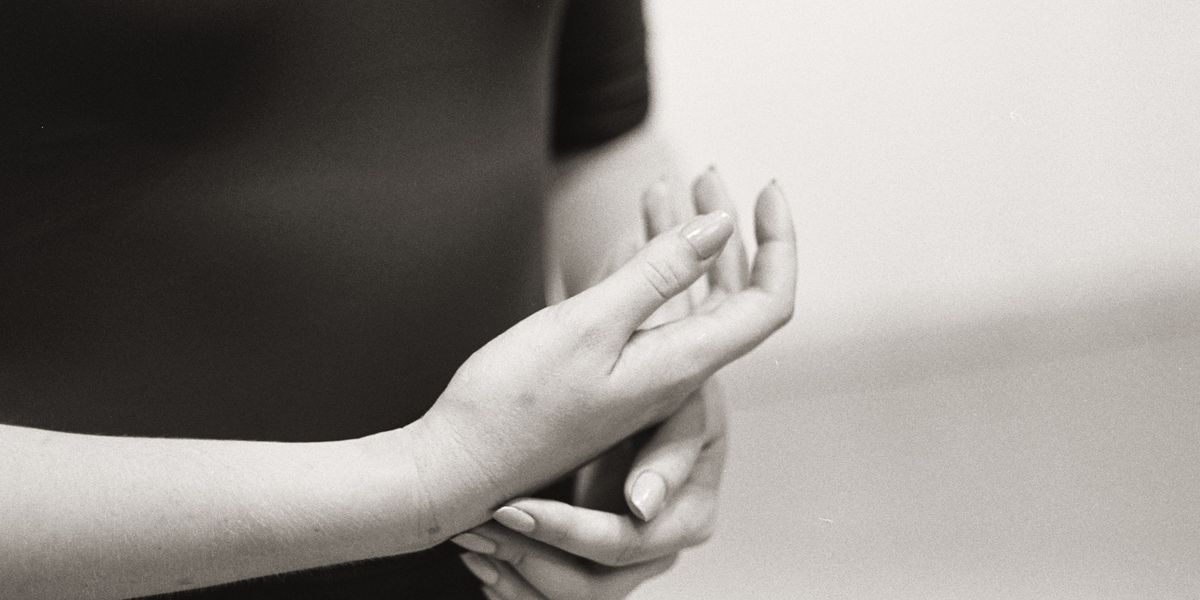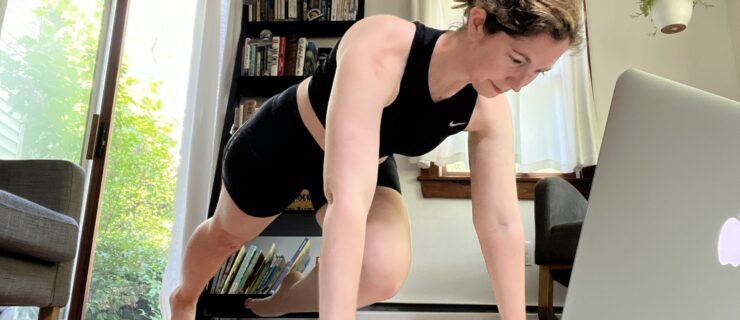Dancing With Eczema: More Than a Minor Irritation
For dancers dealing with eczema and skin sensitivity, ballet poses some unique challenges. I have struggled with both my whole life, and sometimes my eczema is all I can see when I look in the mirror. The condition causes dry, irritated, rash-like patches on the skin. New England Ballet Theatre dancer Rachel Smith, who also suffers from eczema, can relate. “It’s hard to feel confident in yourself or your dancing when you have itchy red spots all over your body that you should leave uncovered so they can heal quickly.”
Dry, sensitive skin and eczema are very common—according to the National Eczema Association, about 10.1 percent of Americans have some form of the skin condition. Sweating all day, tight-fitting dancewear and high levels of stress make dancers with eczema more likely to experience bad flare-ups and daily symptoms. While treatments vary, below are some simple steps dancers can take to ease raw, itchy skin.
 Getty images
Getty images
Understanding Eczema
Eczema is a term that encompasses different kinds of reactionary rashes. Dr. Mona Shahriari, a board-certified dermatologist and an assistant clinical professor of dermatology at Yale University, breaks it down into five categories:
- Atopic dermatitis: The classic form of eczema, rooted in genetics
- Xerosis: Caused by dryness and inadequate moisture; anyone can get this form of eczema
- Allergic contact dermatitis: A rash that develops when skin comes into contact with an allergen
- Irritant dermatitis: Similar to allergic contact dermatitis, but triggered when something that comes in contact with the skin (like scratchy or unfamiliar fabrics) temporarily causes irritation
- Chronic eczematous eruption of the elderly: Dry-skin issues related to aging
Due to the variety of ways eczema can show up, getting to the root of the problem can be tricky. The first thing that Dr. Debra Pruzan-Clain, a board-certified dermatologist at the Dermatology Center of Stamford in Connecticut, recommends to her patients is changing shower routines and using a heavier moisturizing cream. “Keep showers short and lukewarm, and moisturize right after—I usually say within four minutes of toweling off,” says Pruzan-Clain. “Use a heavier cream as opposed to a lotion, because lotion is just cream that they’ve added water to.”

Other easy tips include changing your dancewear often throughout the day to stay dry. Sweat trapped in your leotard and tights can further irritate dryness, especially patches of eczema. “I love fashion in the dance world, and I always try to create a fun look every day,” says Smith. “But sometimes less is more, and I’ll go back to basics so my skin doesn’t get too irritated.” Consider leotards or shirts without sleeves, and made of either cotton or moisture-wicking fabric. Additionally, Shahriari suggests, either shower at the studio immediately after class or wet a towel and wipe sweat and dirt off before leaving, to allow the skin to breathe.
Targeting Skin Triggers
If you have persistent problems with eczema and sensitive skin, consider the products you use. Pruzan-Clain urges dancers with eczema to use soaps, creams, laundry detergents and other products labeled “fragrance-free”—meaning no fragrances have been added—instead of “unscented.” “Oftentimes, products will say they’re unscented, but that’s not the same thing as fragrance-free,” she says. “Unscented can mean that there is a scent, but there is also a masking scent. Fragrance-free is preferable.”
Additionally, some doctors, including my own, recommend daily allergy medication, either over-the-counter or prescription. For those who find this helpful, allergy testing is sometimes recommended. (While I’ve seen major improvement, I never would have tried allergy medication without going to my doctor first, since not all eczema is related to allergies.) Topical prescription medications are used to treat mild to moderate eczema, while oral and injectable options are usually reserved for moderate to severe cases after trying other treatments, says Shahriari.
The Holistic Approach
Although most suggested eczema treatments are topical, managing symptoms can also include focusing inward. “Your skin is like a mirror of what’s happening inside your body,” says holistic nutritionist Kristi Acuña, owner of the Holistic Nutrition Center in Newport Beach, California. When she sees a client for skin concerns (she’s guided several dancers), she examines their diet and personal products to get to the root of the problem. “The body is like an onion, and the skin is only the top layer,” she says.
Smith notes that stress has a big effect on her flare-ups, which Shahriari, Pruzan-Clain and Acuña say is common among patients and clients. “Being a professional dancer comes with its share of stressors,” says Smith. “When I get stressed-out, I find myself itching a lot more, which, of course, leaves me with bigger patches of eczema.”
 Rachel Smith takes a moment to roll out and de-stress. Courtesy American Midwest Ballet
Rachel Smith takes a moment to roll out and de-stress. Courtesy American Midwest BalletPracticing mindfulness and breathing techniques, and setting up a regular calming ritual, can help reduce the effects of stress. At the studio, says Acuña, “keep snacks on hand so you’re balancing your blood sugars throughout the day.” Staying hydrated and getting, ideally, eight hours of sleep are additional ways to support effective body function by lowering stress levels.
Treatment Is a Process, Not a One-Size-Fits-All Cure
Treating eczema and sensitive skin is a constant process. Since everyone’s skin differs, the best thing to do if you’re experiencing symptoms is see a board-certified dermatologist, consult your general practitioner, and consider seeing a holistic nutritionist to develop a personalized treatment plan. Your skin, as your body’s first layer of defense, supports your entire immune system and is way too important to disregard. “The best advice I can give is be nice to your skin and don’t itch!” says Smith. “Ultimately, you have to listen to your body, and it will let you know what it needs.”





